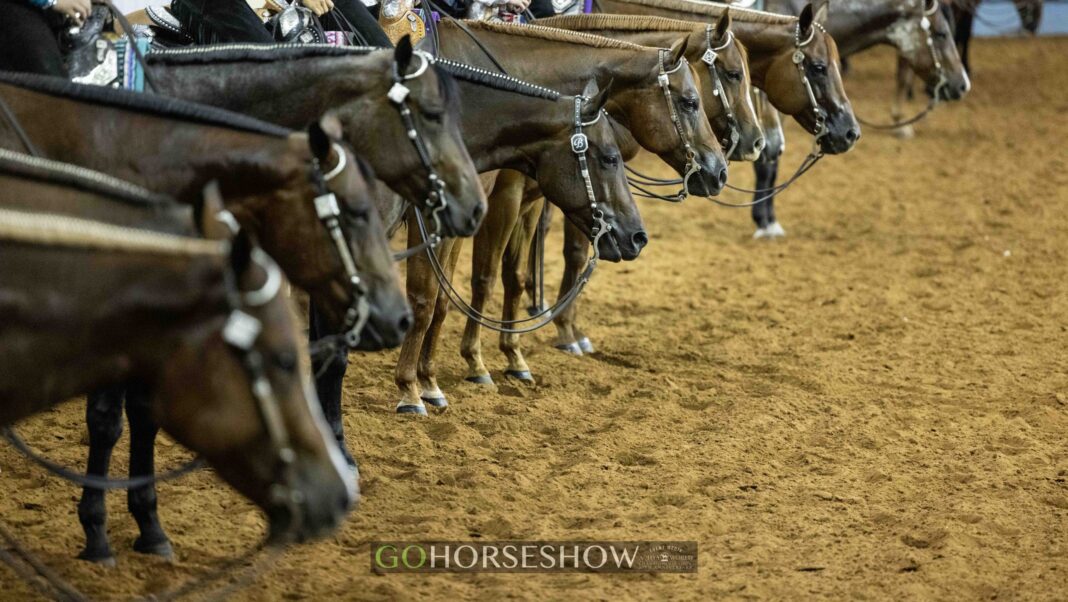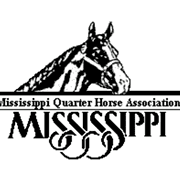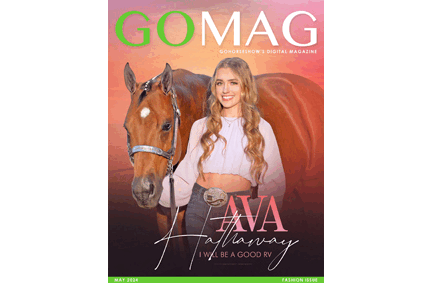Sportsmanship is not an act, it is an action. As a duty to yourself, the industry, and others around you, practicing good sportsmanship (even when it’s difficult) creates a positive environment where people want to return. Appreciating your competition and winning and/or losing graciously are just the beginning of carrying out your role as good sportsmen and women.
Young or old, the value of treating others with respect, radiating positivity, and holding a composed attitude never goes out of style. In the world of equestrian competition, there need to be leaders in such movements.
With these thoughts in mind, we asked trainers how they deal with unsportsmanlike conduct in their barns. Names and reputation mean something in this sport, and you can be remembered for right or wrong. You make your name and its reputation, but people associate you with what they see. It’s up to you to choose. Be the reminder to others that a positive outlook on life events gets you farther.
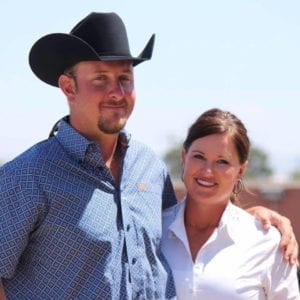 Jenn Wheeler – Simply put, we do not deal with it. We love this sport, we love coaching and training, but there are a few things we just do not tolerate and unsportsmanlike conduct is one of them. It is a privilege to be a part of our barn, this is a family. We support each other, we cheer for each other, and we share each other’s highs and lows. We all jump into each other’s win pictures and we are all there for each other when the losses are plenty. We also cheer for other people, we do not sit in the stands and say anything negative about anyone. If you have anything rude or unkind to say about anyone at a horse show, you better do it back at your hotel room and/or hope that Jenn didn’t hear you say it. If anyone in this family fails to understand how this works, they usually don’t stay here too long. This industry will never sustain if we don’t enforce certain policies in each of our barns, and one of the top five rules here is to support your friends and celebrate their victories. And also be a gracious winner and thank your trainers, your team, your family, and most certainly, thank your horse.
Jenn Wheeler – Simply put, we do not deal with it. We love this sport, we love coaching and training, but there are a few things we just do not tolerate and unsportsmanlike conduct is one of them. It is a privilege to be a part of our barn, this is a family. We support each other, we cheer for each other, and we share each other’s highs and lows. We all jump into each other’s win pictures and we are all there for each other when the losses are plenty. We also cheer for other people, we do not sit in the stands and say anything negative about anyone. If you have anything rude or unkind to say about anyone at a horse show, you better do it back at your hotel room and/or hope that Jenn didn’t hear you say it. If anyone in this family fails to understand how this works, they usually don’t stay here too long. This industry will never sustain if we don’t enforce certain policies in each of our barns, and one of the top five rules here is to support your friends and celebrate their victories. And also be a gracious winner and thank your trainers, your team, your family, and most certainly, thank your horse.
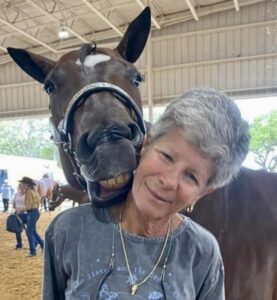 Carrie Grose – I have a talk with the client. If it’s a youth, I include the parents. You can’t win every time. Judges give their opinions and opinions vary. Crying needs to be taken away from the barn, where others don’t have to watch. Showing needs to be a happy, fun atmosphere. We have a really fun group, and everyone is happy for everyone else.
Carrie Grose – I have a talk with the client. If it’s a youth, I include the parents. You can’t win every time. Judges give their opinions and opinions vary. Crying needs to be taken away from the barn, where others don’t have to watch. Showing needs to be a happy, fun atmosphere. We have a really fun group, and everyone is happy for everyone else.
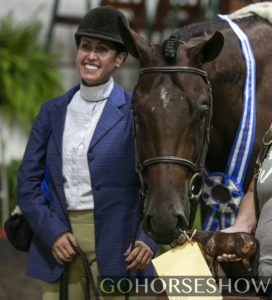 Farley McLendon – I will call that person out in front of the whole barn. I have also pulled that person to the side and reiterated there is no drama tolerated. Yes, it’s a competitive sport, but it’s also to be enjoyed. If you’re making others in the barn uncomfortable, then you probably need to reevaluate your personal goals.
Farley McLendon – I will call that person out in front of the whole barn. I have also pulled that person to the side and reiterated there is no drama tolerated. Yes, it’s a competitive sport, but it’s also to be enjoyed. If you’re making others in the barn uncomfortable, then you probably need to reevaluate your personal goals.
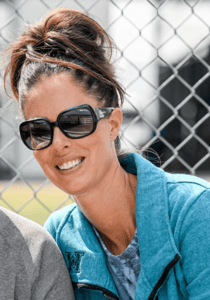 Adrienne Dickerson – This has happened a couple of times in my barn. The best way I’ve found to handle a situation like this is a one-on-one conversation with the family or client and confront it head on. Pushing it under the rug only makes it worse down the road, but a serious conversation about the situation seems to be the best protocol and explain how it will not be tolerated.
Adrienne Dickerson – This has happened a couple of times in my barn. The best way I’ve found to handle a situation like this is a one-on-one conversation with the family or client and confront it head on. Pushing it under the rug only makes it worse down the road, but a serious conversation about the situation seems to be the best protocol and explain how it will not be tolerated.
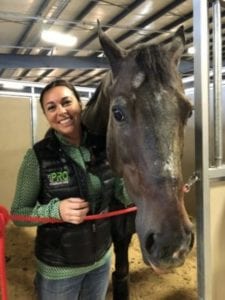 Margaux Tucker – I fire them. The clients I have that trust my program would not be like that and treat others on our team in an unsportsmanlike way, or be hateful towards others. It isn’t the culture I keep in our team. I will address it once if I feel it was a misunderstanding. After that, THEY GO!
Margaux Tucker – I fire them. The clients I have that trust my program would not be like that and treat others on our team in an unsportsmanlike way, or be hateful towards others. It isn’t the culture I keep in our team. I will address it once if I feel it was a misunderstanding. After that, THEY GO!
 Kristy Troyer – We haven’t had to deal with that a lot, but the couple times we have, we sit the people down after and just talk with them. Most of the time it happens that it comes out of frustration, and they are venting in the wrong way.
Kristy Troyer – We haven’t had to deal with that a lot, but the couple times we have, we sit the people down after and just talk with them. Most of the time it happens that it comes out of frustration, and they are venting in the wrong way.
 Ashley Dunbar-Clock – Well, when people first come into my barn, I set a standard so they already know that unsportsmanlike conduct is not allowed nor tolerated. But if it happens, I pull them into a sit-down and remind them it’s not tolerated and that my barn is all on the same team. Support goes a long way in a barn and that’s how I want my barn to run.
Ashley Dunbar-Clock – Well, when people first come into my barn, I set a standard so they already know that unsportsmanlike conduct is not allowed nor tolerated. But if it happens, I pull them into a sit-down and remind them it’s not tolerated and that my barn is all on the same team. Support goes a long way in a barn and that’s how I want my barn to run.
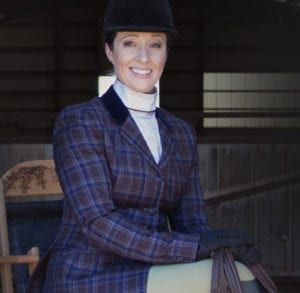 Alyse Roberts – I think you set the example from the top and I think that filters on down to your customers. You give everyone 110% of yourself all the time. I think it’s made very clear to everyone that poor sportsmanship will not ever be tolerated.
Alyse Roberts – I think you set the example from the top and I think that filters on down to your customers. You give everyone 110% of yourself all the time. I think it’s made very clear to everyone that poor sportsmanship will not ever be tolerated.
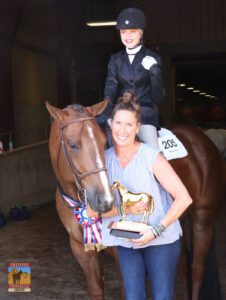 Megan Vanderslice – I do not tolerate unsportsmanlike conduct in my barn. I have lots of kids and it’s my job to teach them about life and showing horses. I stop it the minute it happens and explain why it’s not okay. Horse shows are hard. There are lots of emotions. Learning to handle all the ups and does is part of it.
Megan Vanderslice – I do not tolerate unsportsmanlike conduct in my barn. I have lots of kids and it’s my job to teach them about life and showing horses. I stop it the minute it happens and explain why it’s not okay. Horse shows are hard. There are lots of emotions. Learning to handle all the ups and does is part of it.
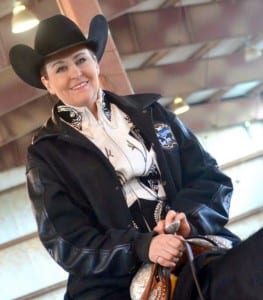 Melissa Shetler – Most of the time, I try to have an honest conversation with the customer/parents (if it’s a youth). I feel that unsportsmanlike conduct stems from jealousy a good part of the time. I try to stop it in its tracks. I explain we are all aiming towards the same goals and some paths getting there are different. If that doesn’t curb the behavior, then sometimes it’s better to let a customer go before it infects the entire barn. Those customers are sometimes unable to change their mindset and they are better off being asked to consider another program.
Melissa Shetler – Most of the time, I try to have an honest conversation with the customer/parents (if it’s a youth). I feel that unsportsmanlike conduct stems from jealousy a good part of the time. I try to stop it in its tracks. I explain we are all aiming towards the same goals and some paths getting there are different. If that doesn’t curb the behavior, then sometimes it’s better to let a customer go before it infects the entire barn. Those customers are sometimes unable to change their mindset and they are better off being asked to consider another program.
 Anne Shafer – My first experience in dealing with unsportsmanlike conduct was years ago when I had a youth exhibitor that started with a bad attitude at a show and the more she didn’t win, the worse it got. I finally decided to send her home with someone that was headed that way and deal with this problem away from the show team. When I got home, I had a meeting with the youth child and her father, and at the time, it seemed like she understood what bad sportsmanship was and I was hoping to never have that problem again. But, the next trip was two shows back-to-back and by the second show, her unsportsmanlike conduct came back with a vengeance. I immediately pulled her off of her horse, told her to pack up all of her stuff, and called her dad to come pick her up. I never let her back into my program again. Now, handling adults with this problem is another issue. I have found over the years that unsportsmanlike conduct comes with immature behavior for everything. This kind of person just drags everyone down all the way around, so it is better for your program and team that they find a new home.
Anne Shafer – My first experience in dealing with unsportsmanlike conduct was years ago when I had a youth exhibitor that started with a bad attitude at a show and the more she didn’t win, the worse it got. I finally decided to send her home with someone that was headed that way and deal with this problem away from the show team. When I got home, I had a meeting with the youth child and her father, and at the time, it seemed like she understood what bad sportsmanship was and I was hoping to never have that problem again. But, the next trip was two shows back-to-back and by the second show, her unsportsmanlike conduct came back with a vengeance. I immediately pulled her off of her horse, told her to pack up all of her stuff, and called her dad to come pick her up. I never let her back into my program again. Now, handling adults with this problem is another issue. I have found over the years that unsportsmanlike conduct comes with immature behavior for everything. This kind of person just drags everyone down all the way around, so it is better for your program and team that they find a new home.


